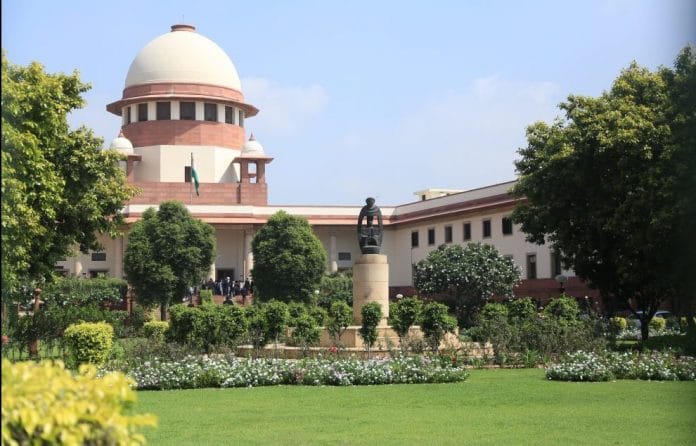New Delhi: More than nine years after it upheld a Nashik court death sentence to six men, the Supreme Court Monday acquitted all of them who were convicted for murdering five people and raping two women.
The top court bench comprising Justices A.K. Sikri, S. Abdul Nazeer and M.R. Shah also directed the Maharashtra government to pay the six men — Ankush Maruti Shinde, Rajya Appa Shinde, Ambadas Laxman Shinde, Raju Mhasu Shinde, Bapu Appa Shinde and Surya aka Suresh — a compensation amounting to Rs 5 lakh each.
The six men were held guilty of killing five members of a family during a robbery. The men were also accused of gang-raping two — a woman who survived and a 15-year-old who died. The sessions court in Nashik had sentenced them to death in 2006.
While acquitting the men, the apex court pulled up the state government and directed it to investigate the crime that took place over a decade ago.
“The accused in the present case were nomadic tribes and falsely implicated… Except one, all of them are in jail since last 16 years,” the top court noted in its verdict.
“All were facing the hanging sword of death penalty. Out of six accused persons, one was subsequently found to be a juvenile,” the court said.
Indicting the state for its lax investigation, the SC said the investigating officer “deliberately and willfully” suppressed facts that would lead to the capture of the real culprits.
The court also directed the state “to enquire into the matter and take departmental action against those erring officers/officials, if those officers/officials are still in service”.
Also read: Supreme Court’s fresh push for Ayodhya mediation brings back 160 years of failed attempts
Compensation awarded for mental harassment
The court observed that according to a report submitted by a psychiatrist, Dr. Ashit Sheth, Ankush Maruti Shinde was subsequently found to be a juvenile.
The apex court took note of Sheth’s opinion that said Ankush Maruti Shinde had lived under sub-human conditions for several years.
“He was kept in isolation in solitary confinement with very restricted human contact and under perpetual fear of death. He was only allowed to meet his mother, and that too only infrequently. He was not even allowed to mix with other prisoners,” observed the court.
“Therefore, all the accused remained under constant stress and in the perpetual fear of death. As they were facing the death penalty, they might not have availed any other facilities of parole, furlon etc,” it said.
While fixing the compensation amount, the court added, “All of them who were between the age of 25-30 years (and one of the accused was a juvenile) have lost their valuable years of their life in jail. Their family members have also suffered.”
Twists and turns
The matter reached the top court by way of appeals after the Bombay high court upheld the death sentence for three convicts and commuted the sentence to life for the other three in 2007.
In 2009, the Supreme Court dismissed the appeals filed by the three men facing the death penalty, and reversed the high court decision to award all six the death sentence.
“The murders were not only cruel, brutal but were diabolic,” the top court had said at the time.
In 2010, the apex court dismissed the review pleas filed by three of them. However, four years later the top court allowed the appeals filed by the remaining three death row convicts.
The SC also allowed a plea in 2016 filed by the three whose review plea was dismissed in 2010.
Last year, while hearing the review plea for all six, the Supreme Court recalled the death penalty awarded to the six men and allowed the appeals to be heard once again.
Also read: In SC today, review plea of court’s own Rafale verdict saying jet deal doesn’t need scrutiny






